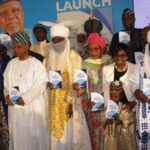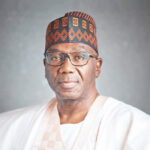International Literacy Day, observed every September 8, is more than an occasion to celebrate the ability to read and write; it is an opportunity to reflect on the broader implications of literacy in Nigerian society. This year’s theme, “Promoting multilingual education: Literacy for mutual understanding and peace,” invites scholars, educators, policymakers, and communities to think critically about how literacy encompasses a wide range of skills and knowledge that contribute to social cohesion and peaceful coexistence.
Historically, literacy has often been confined to the ability to read and write. However, as we seek to deconstruct singular narratives, it has become increasingly clear that literacy is a multidimensional construct. It includes critical thinking, cultural awareness, digital competencies, and the ability to communicate in diverse languages.
According to the United Nations Educational, Scientific and Cultural Organization (UNESCO), multilingual education is essential for promoting equitable lifelong learning opportunities, nurturing the unique identities of learners, and fostering respect for cultural diversity. Literacy should move beyond the colonial rhetoric of understanding letter sounds to an expanded understanding of oppressive structures built into education by the colonizers.
In the realm of critical pedagogy, Paulo Freire’s work serves as a powerful lens through which to address literacy’s broader social implications. Freire, a Brazilian educator and philosopher, emphasised the importance of dialogue in the learning process, arguing that education should not be a mere transfer of knowledge but a collaborative practice that critically engages learners in understanding their world.
- Tinubu trying, he inherited near-bankrupt nation – Tafawa-Balewa
- Bauchi: Senator Buba donates to flood victims, asks gov to act
His experiences in Brazil and Chile demonstrated the transformative potential of education when it is rooted in real-life contexts and encourages individuals to reflect upon their circumstances. Freire’s concept of “conscientização,” or critical consciousness, advocates for an education that empowers individuals to recognise social injustices and take action for change. This aligns seamlessly with the theme of multilingual education posited for International Literacy Day, as recognising and valuing multiple languages fosters an environment where diverse perspectives contribute to mutual understanding and peace.
In Nigeria, a country where many different languages and cultures reign, multilingual education is indispensable. Nigeria is home to over 300 languages (debatable). This is nothing if not a mixed blessing. The existence of multiple languages represents a repository of collective wisdom and identities, but it can also lead to tensions and misunderstandings when not embraced inclusively.
Freire’s principles can guide educational reform in Nigeria, particularly in addressing the marginalisation of indigenous languages in academic settings. Current policies often prioritise English as the medium of instruction, thus silencing local languages and cultural narratives. This emphasis can foster feelings of alienation and discord among communities that identify strongly with their native languages.
By integrating multilingual education that respects and employs local languages alongside colonial languages, education in Nigeria can promote mutual understanding among various ethnic groups.
Moreover, fostering literacy that transcends reading and writing encourages a holistic approach to education. It cultivates not only linguistic capabilities but also critical engagement with social issues, enhancing students’ ability to articulate their thoughts, collaborate across cultural lines, and engage in community-building efforts.
For instance, educational programmes that include discussions of local folklore, history, and socio-political contexts in students’ native languages can facilitate a deeper understanding of their identities and the world around them. It can build a scientific and revolutionary zeal to create solutions to local challenges. I look forward to children reading physics theories in Efik, Ijaw, Tiv and Hyam and using the knowledge to build power solutions or create farming innovations across Nigeria.
International Literacy Day in 2024 reminds us that literacy extends far beyond the ability to read and write; it serves as a foundational element for promoting mutual understanding and peace. By embracing multilingual education, we can enhance critical consciousness among learners, in line with Paulo Freire’s vision of an education that is liberating and transformative.
In contexts like Nigeria, implementing such educational practices can lead to greater social cohesion and a more peaceful society where diverse voices are heard and valued.
As we celebrate this important day, let us commit to a vision of literacy that is inclusive, critical, and a catalyst for understanding in our multicultural world.
Namse Udosen is an international education and development specialist
 Join Daily Trust WhatsApp Community For Quick Access To News and Happenings Around You.
Join Daily Trust WhatsApp Community For Quick Access To News and Happenings Around You.


